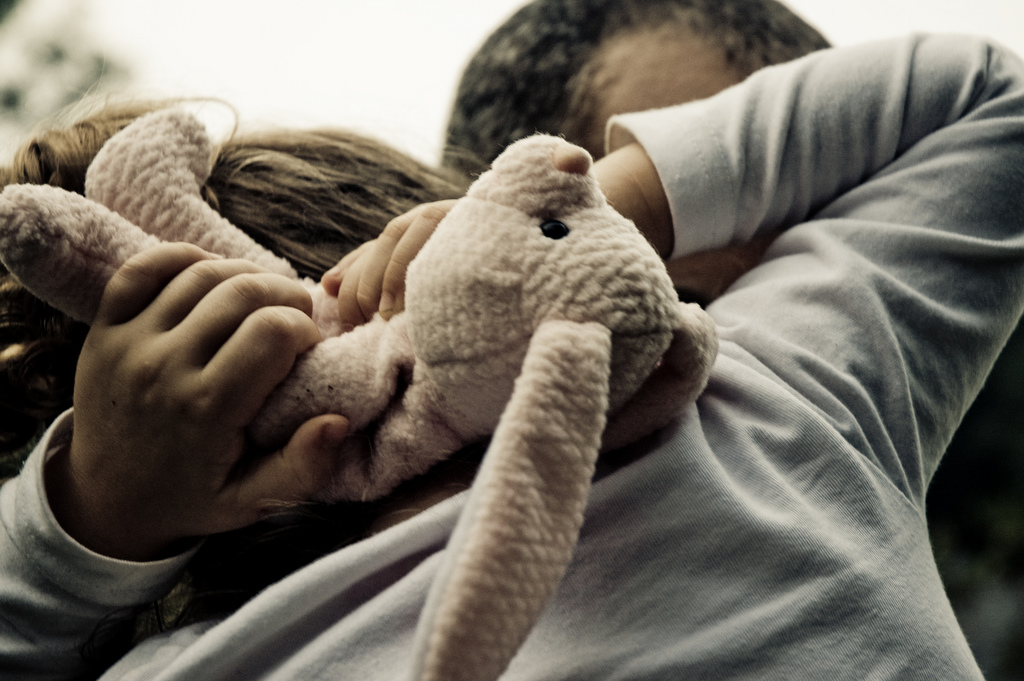Nightmares and night terrors are confusing in both cause and treatment. Knowing the difference between the two is the key to determine the best way to handle each episode. Nightmares occur during REM sleep, which happens near the end of our sleep period. When children have a nightmare, they will seek comfort from their disturbing dream and recognize you upon seeing you. They are able to recall the nightmare, but it may take awhile to fall back asleep and get the scary thoughts out of their minds. Nightmares are very common and are part of normal development. Their occurrence often peaks at two and three years of age when children have rich imaginations and have some trouble distinguishing between reality and fantasy. Nightmares are, of course, common after difficult events or when children are re-living a trauma.
What to do
- Avoid scary videos, books, etc. prior to bed
- Don’t play scary games
- Respond quickly and assure them of their safety
- Help your child get enough sleep – sleep deprivation can increase nightmares
- Avoid high-dose vitamins at bedtime
- Check with your pediatrician to make sure your child is not on any medications that might be interfering with his night sleep
Night terrors are different from nightmares in both the symptoms and the experience. When a child is experiencing a night terror she may scream and appear anxious. There may also be sweating and/or a racing heart beat. The child is often inconsolable. The terror usually lasts between five and fifteen minutes and then subsides. These incidents are often more upsetting for the parent than they are for the child, as children do not usually remember them. Night terrors occur during NON-REM sleep (the period of coming out of deep sleep), and usually within two hours of going to sleep. Night terrors are not bad dreams. They do NOT occur during dream sleep. They are not a sign of a psychological problem. Night terrors can also occur during a developmental milestone.
Night terrors seem to be more common in boys, and occur in 5% of all children. Your child is more likely to have night terrors if either parent had them as a child, or if either parent had a partial arousal sleep disorder such as sleepwalking. There are other causes for night terrors. The most common cause is sleep deprivation or a disturbance in a child’s sleep patterns. Stress that causes big changes in their sleep schedule (like traveling to a different time zone, sleep apnea, or fever) can also be contributing factors.
What you can do
- If your child is having a night terror, monitor the child but avoid interfering, as this can worsen the episode
- Make sure your child is physically safe during the night terror
- Put your child to bed earlier – even if by only 30 minutes
- Keep a regular sleep schedule for him
- Don’t talk about the terror with your child in the morning
If your child is having night terrors two to three times a week at set times during the night (i.e. 2 hours after going to sleep) do the following
- Keep a sleep log
- Plan on the episodes taking at least 7-10 days to diminish
- Wake your child 15 minutes prior to the time he usually has an episode to the point where he mumbles, moves, or rolls over
- Do this every night for 7-10 nights in a row
As these two phenomenons differ so greatly in treatment, it is important to clearly understand the difference between nightmares and night terrors. Keeping a calm presence of mind and using a reassuring voice can make a huge difference in these middle-of- the-night episodes for both you and your child. Remember to reassure your child as needed, showing love and respect for these normal experiences. I wish you and your family many sweet dreams!
Was this article helpful to you? Please tell us by commenting below! For more baby, toddler, and family sleep tips and tricks, please subscribe to The Sleep Lady’s Facebook, Twitter, Pinterest, Google+, and YouTube channel! If you are looking for more sleep content, please check out Get Sleep Now-an exclusive members-only area designed to provide in-depth help and support during your sleep coaching experience.




